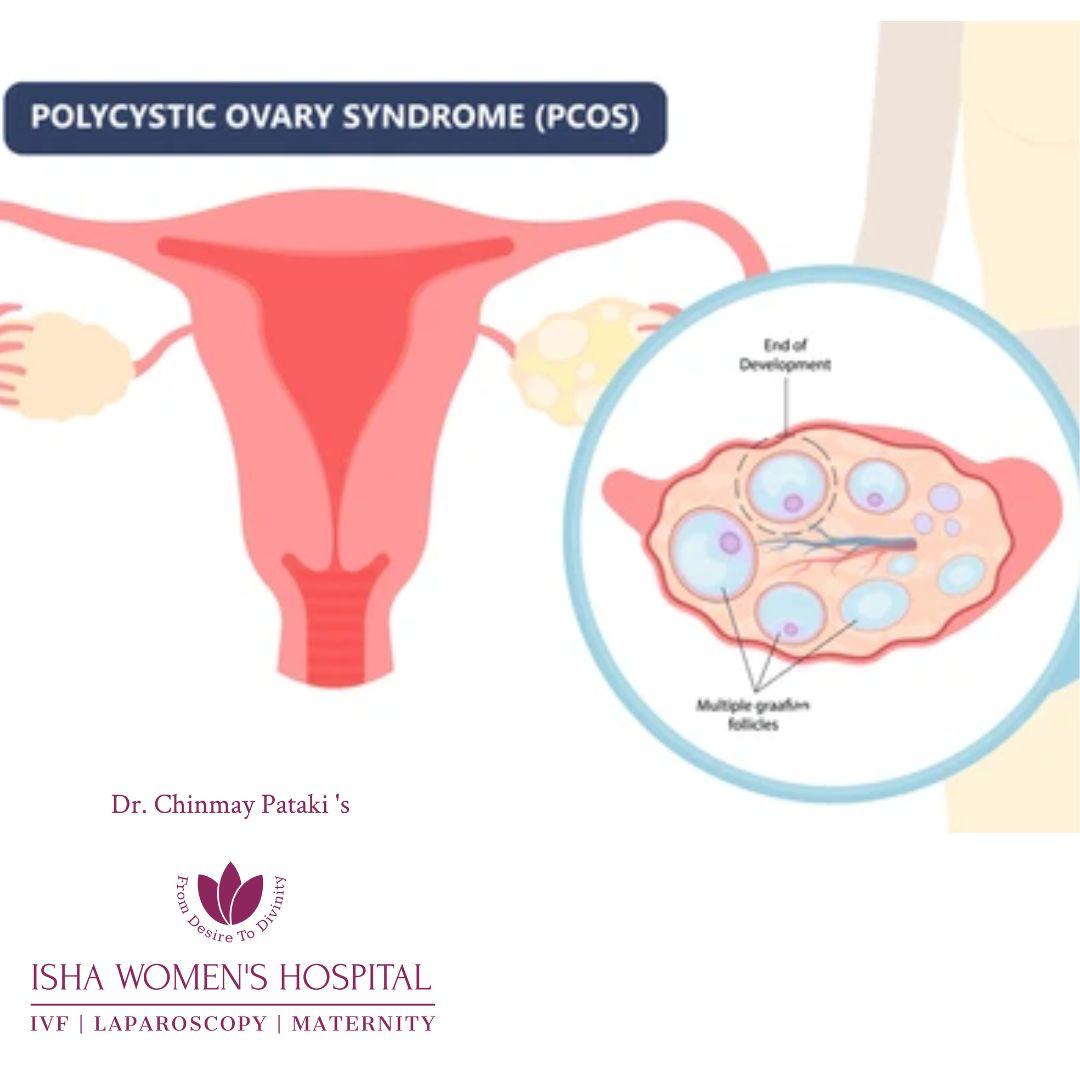PCOS: POLYCYSTIC OVARY SYNDROME

What is PCOS?
How does PCOS Affect Fertility?
PCOS & Fertility Care at Isha Women’s Hospital
- Personalized Treatment Plans: Dr Chinmay Pataki one of the best gynaecologists believes that each PCOS case is different. So Isha Women's Hospital focuses on providing personalized care to determine the best fertility treatment, whether through lifestyle modifications, medication, diet plans or assisted reproductive technologies like IVF or ICSI. With a deep understanding of reproductive health, our best fertility consultant, Dr. Chinmay Pataki, ensures you receive the highest level of care and support. Our team stays up-to-date on the latest advancements in fertility treatments, giving you access to cutting-edge solutions.
- Comprehensive Support: Beyond medical treatments, the expert staff of Isha Women's Hospital also offers emotional and nutritional counselling to help manage the symptoms of PCOS. We believe in treating the whole patient, not just the condition, ensuring you have the support you need every step of the way.
Fertility Pathways for Women with PCOS
Frequently Asked Questions (FAQs)
Answer: PCOS is a common hormonal disorder affecting women of reproductive age. It causes irregular periods, excess androgen (male hormone) levels, and enlarged ovaries with small cysts. PCOS can impact fertility, metabolism, and overall health if not managed properly.
2. What are the common symptoms of PCOS?
Answer: PCOS symptoms can vary but typically include:
- Irregular or missed periods
- Excess facial or body hair (hirsutism)
- Acne or oily skin
- Weight gain or difficulty losing weight
- Hair thinning or hair loss
- Difficulty getting pregnant
Some women may also experience mood changes or insulin resistance.
3. How does PCOS affect fertility?
Answer: PCOS interferes with ovulation, making it harder to release a mature egg regularly. This irregular or absent ovulation is a major cause of infertility in women with PCOS. However, with the right treatment and support, many women with PCOS conceive successfully.
4. How is PCOS diagnosed?
Answer: Diagnosis is based on a combination of:
- Medical history and symptoms
- Pelvic ultrasound (to check for cysts on the ovaries)
- Blood tests (to assess hormone levels like LH, FSH, testosterone, and insulin)
At Isha Women’s Hospital, we follow the Rotterdam criteria for accurate diagnosis.
5. What are the treatment options for PCOS?
Answer: There’s no cure, but PCOS can be effectively managed through:
- Lifestyle changes: Healthy diet, regular exercise, and weight management
- Medications: For regulating periods, managing insulin resistance, or stimulating ovulation (e.g., clomiphene, letrozole)
- Fertility treatments: IUI or IVF for those trying to conceive
- Hormonal therapy: To control acne, hair growth, and menstrual cycles
Conclusion
Contact us today to schedule a consultation and begin your fertility journey with confidence.
